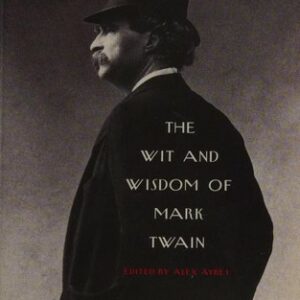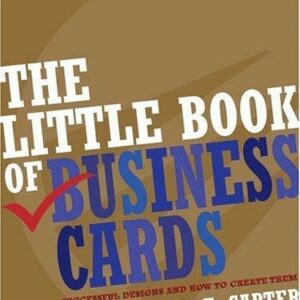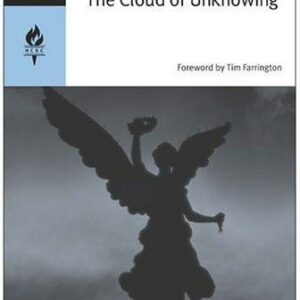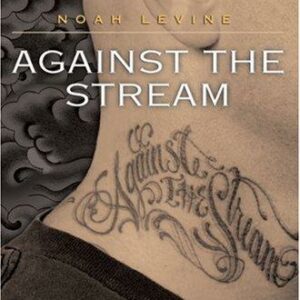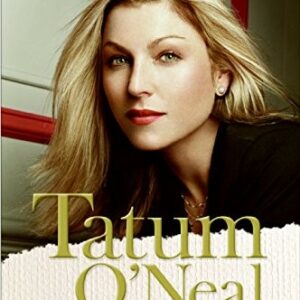A Flash of Green
$18.00
| Title | Range | Discount |
|---|---|---|
| Trade Discount | 5 + | 25% |
- Description
- Additional information
Description
A Flash of Green tells the gripping story of small-town corruption and two people brave enough to fight back, featuring many of the themes John D. MacDonald explored better than anyone in his legendary career as a leading crime novelist.
Introduction by Dean Koontz
The opportunists have taken over Palm City. Silent and deadly, like the snakes that infest the nearby swamps, they lay hidden from view, waiting for the right moment to strike. Political subterfuge has already eased the residents toward selling out. All that’s left now is to silence a few stubborn holdouts.
James Wing is only trying to help a friend’s widow. At least that’s what he tells himself after warning Kat Hubble that the beautiful bay she and her neighbors have struggled to save is going to be sold to developers. He knows that he shouldn’t have told her anything. He’s a reporter, trained to reveal nothing. But he’s falling in love with her. Now cutthroats have set their sights on Kat—and they’ll do anything, use anyone, to stop her from interfering in their plans.
Praise for John D. MacDonald
“John D. MacDonald was the great entertainer of our age, and a mesmerizing storyteller.”—Stephen King
“The first modern writer to nail Florida dead-center, to capture all its languid sleaze, racy sense of promise, and breath-grabbing beauty.”—Carl Hiaasen
“To diggers a thousand years from now, the works of John D. MacDonald would be a treasure on the order of the tomb of Tutankhamen.”—Kurt VonnegutPraise for John D. MacDonald
“The great entertainer of our age, and a mesmerizing storyteller.”—Stephen King
“My favorite novelist of all time . . . All I ever wanted was to touch readers as powerfully as John D. MacDonald touched me. No price could be placed on the enormous pleasure that his books have given me. He captured the mood and the spirit of his times more accurately, more hauntingly, than any ‘literature’ writer—yet managed always to tell a thunderingly good, intensely suspenseful tale.”—Dean Koontz
“To diggers a thousand years from now, the works of John D. MacDonald would be a treasure on the order of the tomb of Tutankhamen.”—Kurt Vonnegut
“A master storyteller, a masterful suspense writer . . . John D. MacDonald is a shining example for all of us in the field. Talk about the best.”—Mary Higgins Clark
“The consummate pro, a master storyteller and witty observer . . . John D. MacDonald created a staggering quantity of wonderful books, each rich with characterization, suspense, and an almost intoxicating sense of place.”—Jonathan Kellerman
“There’s only one thing as good as reading a John D. MacDonald novel: reading it again. A writer way ahead of his time, he is the all-time master of the American mystery novel.”—John SaulJohn D. MacDonald was an American novelist and short-story writer. His works include the Travis McGee series and the novel The Executioners, which was adapted into the film Cape Fear. In 1962 MacDonald was named a Grand Master of the Mystery Writers of America; in 1980, he won a National Book Award. In print he delighted in smashing the bad guys, deflating the pompous, and exposing the venal. In life, he was a truly empathetic man; his friends, family, and colleagues found him to be loyal, generous, and practical. In business, he was fastidiously ethical. About being a writer, he once expressed with gleeful astonishment, “They pay me to do this! They don’t realize, I would pay them.” He spent the later part of his life in Florida with his wife and son. He died in 1986.One
When she heard the rattle of the old tin wheelbarrow, Kat Hubble knew it was after four. On Tuesdays, after he had finished up at the Lessers’, and on Fridays, when he was through at the Cable home, Barnett Mayberry would do one extra hour of yard work at her house before getting into his stuttering old car and driving back home to Pigeon Town, the Negro community on the far side of Palm City.
Before Van had been killed, Barnett had come one full day a week, and though now it added up to only one quarter of the time, he seemed to keep the place looking as neat as ever, though of course she had begun no new landscape projects in this past year, and she did more of the work herself.
The arrangement with Barnett had just seemed to happen. Beginning the week after the funeral, he had stopped by to take care of things which obviously needed attention, such as clipping the side hedge of Australian pine, and she had given him a dollar for each after-work hour. In some mysterious way it had become a routine. It so exactly fitted her diminished purse and her needs that she could not help suspecting it was not entirely satisfactory to Barnett, that he had entrapped himself through some murky idea of loyalty and pride in past projects. Yet when she had at last taxed him with it, he had looked rigidly beyond her and shuffled his feet and said, “I got a place for them dollahs, Miz Hubble. It working out good for me.”
She had always felt slightly indignant that Van should be able to get along so effortlessly with Barnett and the other Negroes who had worked for them from time to time. But, as he had reminded her, there was quite an environmental gap between a girlhood in Plattsburg, New York, and a boyhood in Orlando, Florida.
She would hear Van out in the yard, laughing with Barnett, and once when he came in she said, “Hee-hee-hee. Yuk, yuk, yuk. I’ll bet he doesn’t laugh that way when he’s with his own people.”
Van had stared at her in honest surprise. “Of course he doesn’t, cutie. And he doesn’t talk the same way either. He uncle-toms me a little, but without losing his dignity, and I pull the mahster a little on him, but not too much. It’s a protocol thing, Kat, and it makes us both feel at ease because we both know so very damn well the limits of the relationship in which we have to operate. He’s just as respected a citizen in his neighborhood as I am in mine. If I try to push him beyond the limits he sets, he’ll just get slower and stupider until I leave him alone. And if he tries to take advantage of me, he expects to get chewed.”
“But when I go out to tell him what I’d like him to do, he stares into space and acts terrified.”
“He probably is. He knows you don’t know the rules. He knows you’re a Wellesley liberal. You might ask him what he thinks of Faubus. And the next time you listen to us have an attack of the jollies, dear heart, you might note that I probably laugh differently and speak differently than when I’m with my own people. He’s probably as wary with Burt Lesser as he is with you, and as comfortable with Martin Cable as he is with me.”
Since Van’s death, Barnett had given her the curious impression he had been trying to put her at ease. He would make some empty remark and then laugh. Five years ago she had bought a little rubber tree in a pot for twenty-five cents. Now it was nearly twenty feet tall and continually covered with the upright bloody spears of new leaf growth. “Heee!” Barnett would say. “Little ol’ two-bits tree.” That was their signal for the vague social laughter. But once it had brought too clear a memory of Vance, and one laugh had become a sob and she had fled into the house.
When she heard the sound of the wheelbarrow, she left the letter she was writing her sister and went out into the side yard. The lower Gulf Coast, from Tampa to the Keys, was enfolded in an airless July heat which was so merciless it had little flavor of tropic languor. Instead, it seemed to have a humming intensity, an expectancy, as though any moment the Gulf and the bays would be brought to the boiling point and all the roofs would break into flame. Each afternoon the thunderheads made their lazy, ominous, atomic symbols out over the Gulf. Sometimes there would be a riffle of rain-wet air turning the leaves, but all the storms moved ashore across other counties.
Barnett had trundled the wheelbarrow over to the pile of cuttings under the punk trees. She saw that he was wearing one of Van’s discarded shirts, a pale-blue Orlon knit that she had always liked on Van until the sun of Saturday golf had faded it unevenly and he had given it to Barnett. She tested the familiarity of that shirt upon herself, like touching and retouching something which might be a little too hot to hold and then finding, with a certain pride, that you can hold it after all.
Barnett Mayberry was of an unusual muddy saffron hue, and his features seemed more Asiatic than Negroid. When Van had been annoyed with him, he would call him, never to his face, “That damned Manchurian.”
“Fixin’ to tote thisheer bresh over to burn, Miz Hubble.”
“That’s fine, Barnett. I wanted to ask you about this thing that’s growing up into the live oak.”
He followed her across the yard. “I seen him,” Barnett said. “This here a strangle vine.”
“It’s growing awfully fast. Should it come out?”
“Fixin’ to take him out. I’ll cut him off low now, and next week he lets go enough up there, I pull him down easy. Take a long long time to kill that tree, we let it go. By the time it die, all you can see is the strangle vine aholt all over it.”
A car turned into her drive and stopped. It was an old blue Plymouth station wagon. She felt a quick pleasure as she recognized it as Jimmy Wing’s car and saw him clambering languidly out from behind the wheel, grinning at her, lifting his arm in a lazy greeting. He came across the yard toward them, loose-jointed, a sandy man in his middle thirties, a man with a long narrow head, a thrusting, fleshy nose, a face more deeply lined than his years warranted. His hair, brows, lashes and his light-blue eyes were not as dark as the slightly yellowed tan of his face. He had a crooked mouth and an ugly crooked grin–both sweet and wry in an attractive simultaneity. He wore a white short-sleeved sport shirt and light-gray slacks. He had the unconscious knack of giving the most ordinary clothes a look of elegance. She had decided it was partly because of the lazy grace of the way he moved, partly because of his spare bony frame, partly because he was so consistently immaculate.
Whenever he recalled how she had disliked him before Van had been killed, she was astonished at how blind she had been. Jimmy had been the only one of Van’s close friends she had actively disliked.
“If it’s any help to you, it’s worse in town, Kat. How you, Barnett?”
Barnett’s grin was broad, his voice emphatic. “Fine, Mist’ Wing. Just fine.”
“You get those pictures?”
“I sure thank you, Mist’ Wing.”
“She get in up there to Tuskegee?”
“They said for her to come.”
“That’s one fine girl, Barnett.”
“What’s this all about?” Kat asked.
She found herself walking toward the house with Jimmy and knew he had effortlessly avoided explaining in front of Barnett. And she knew she had once again violated some obscure clause of the protocol.
“His daughter was valedictorian at their high school last month. Sandra Nan. Not much for looks, but hellish bright and energetic. Barlow got a good picture of her, so I had the darkroom make up three glossies and send them to the family.”
“Darn it! I should have known that.”
“He’s got one good boy, and one boy headed for trouble, so he’s batting high in the league.”
“Jimmy, do you know everything about everybody in Palm County?”
“Now, if I did, honey, everybody would be paying me not to work on the paper.”
They went through the screened portion of the cage at the rear of the house. He slid a glass door open and they walked into the roofed portion of the patio.
“Well, now!” he said, looking at her quizzically. “You’ve sissied out, Kat.”
“And every time I turn the noisy thing on I remember how Van hated air conditioning, and I feel immoral and guilty. You know my tenants stayed to the middle of June, and you know it got hot early this year. So they wanted one and we dickered around, and we finally decided I’d pay a hundred dollars against it, and if they take the house again next year, I’ll cut the lease another hundred. It’s a three-ton thing, and it’s sticking in the wall between the living room and the bedroom wing. What can I fix you to drink?”
“Can of beer is fine, if you’ve got it.”
“Coming up.” She went to the kitchen and brought the two opened cans back to the glass-top patio table, sat across from him.
“Will the whosises want the house next season?”
“The Brandts. They say so. They’ll let me know for sure by the first of November. Let me make my full confession on the air conditioner, Jimmy. I wasn’t going to use it. I was just going to let it sit there. But you know how cold they keep the darn bank all day. When I’d get out, I’d just wilt. I held out until last week, wearing my prickly heat rash like a badge of honor or something. Then I woke up in the middle of the night and my hair was sopping wet and it was too hot to go back to sleep. So like a thief I snuck around and closed the windows and plugged the beast in, and slept so hard I nearly didn’t hear the alarm.”
“Now you’re hooked.”
“I’ve fallen so low I even like the noise it makes.”
Jimmy stood up and walked toward the living room to stand and look the length of it. “Looks just the same,” he said.
“It is, and it isn’t. Jean Brandt had different ideas. I suppose any woman would, really. She moved things around, and she stored things away. I’ve been getting things back the way they were, but they won’t be exactly the way they were. It looks a little different, and it feels different. Do you know? It was our house, but now I feel a little bit as if I were renting it too–from the Brandts. It isn’t as important to me as it was, which is very probably a good thing. I’m glad you talked me out of putting it on the market.”
He came back to the table. “You would have taken a whipping, Kat.”
“I just didn’t think I could endure living here.”
“We can always stand a little more than we think we can. One thing on my mind, Kat, I’ve got to drive up to Sarasota next Sunday. Borklund wants me to do a feature on their public beach program. I’ve got about everything I need, but there’s one fellow I want to talk to. And he won’t take up much time. So how about you and the kids coming along?”
She studied him, wondering if it was coincidence, then saw his casualness was a little too elaborate. “Thank you, dear Jimmy. I know it’s going to be a rough day for me. I’ve been dreading it for weeks. But I’ll manage.”
He shrugged. “But if coming along with me would make it any easier . . .”
“It would. Indeed it would, and I’m grateful. But, you see, the neighbors have been conspiring to keep me distracted, and I’ve given so many polite refusals I wouldn’t feel right saying yes to you. Van died on July ninth. Once I’m past this one, it will be over a year. I can manage it. The kids and I are going on a beach picnic by ourselves. I’ll have a lot of July ninths to get over. This will only be the second worst. Jimmy, it’s nice to have you stop by. I like seeing you in the bank too, but that’s when I have to keep being the happy hostess. Ready for another beer?”
“I’ll ride with this, thanks.” He frowned at his big, bony, freckled fist for a few moments, then looked at her with an odd expression. “I thought you’d come along on Sunday, and it would have given me a chance to talk to you about something.”
“You act as if it’s something unpleasant.”
“It is, and I better give it to you now. It’s off the record, honey. You’re still active in the S.O.B.’s, aren’t you?”
“Recording secretary, but there hasn’t been anything to record. Save Our Bays, Inc., has sort of been resting on its laurels.”
“It might be a very timely idea for you to resign.”
“What is that supposed to mean?”
“That project of filling in Grassy Bay is going to be opened up again soon.”
“You can’t mean it, Jimmy! You can’t be serious. Two years ago we licked it. I never worked so darned hard in my life. And Van too. All those phone calls and petitions and ringing doorbells and going to public meetings and taking all that abuse. We whipped them. We mobilized all the conservation groups and we got a bulkhead line established in Palm County, and nobody can fill beyond that line. Nobody can touch Grassy Bay. We saved it! You must be joking.”
His smile was bitter. “It’s going to astound a lot of other people too. Let’s say you saved it for two years. It’s a different deal this time. They’ve been setting it up quietly for almost a year. Last time, it was an outfit coming in from outside.”
“Sea ’n Sun Development. From Lauderdale.”
“This time it’s local.”
“Local men?”
“Don’t look so incredulous. And the fill project is a little bigger. Eight hundred acres. They have an option on a good big piece of upland to give them access to the bay. The financing has been arranged for. When the county commissioners set that wonderful bulkhead line, they reserved the right to change it.”
“But they have to have a public hearing.”US
Additional information
| Dimensions | 1.0000 × 5.2000 × 7.9000 in |
|---|---|
| Imprint | |
| Format | |
| ISBN-13 | |
| ISBN-10 | |
| Author | |
| Audience | |
| BISAC | |
| Subjects | mystery thriller suspense, mystery thriller, mystery suspense, crime books, suspense thriller, detective novels, hard-boiled, thriller suspense, mystery fiction, suspense books, murder mystery books, mystery and thrillers, mystery and thriller, crime novels, crime novel, mystery suspense thriller, mystery crime, suspense and mystery, mysteries, thriller, FIC030000, detective, suspense, mystery, noir, crime fiction, thrillers, crime, crime thriller, mystery thrillers, mystery and suspense, mystery books, mystery novels, FIC031000, thriller books |



